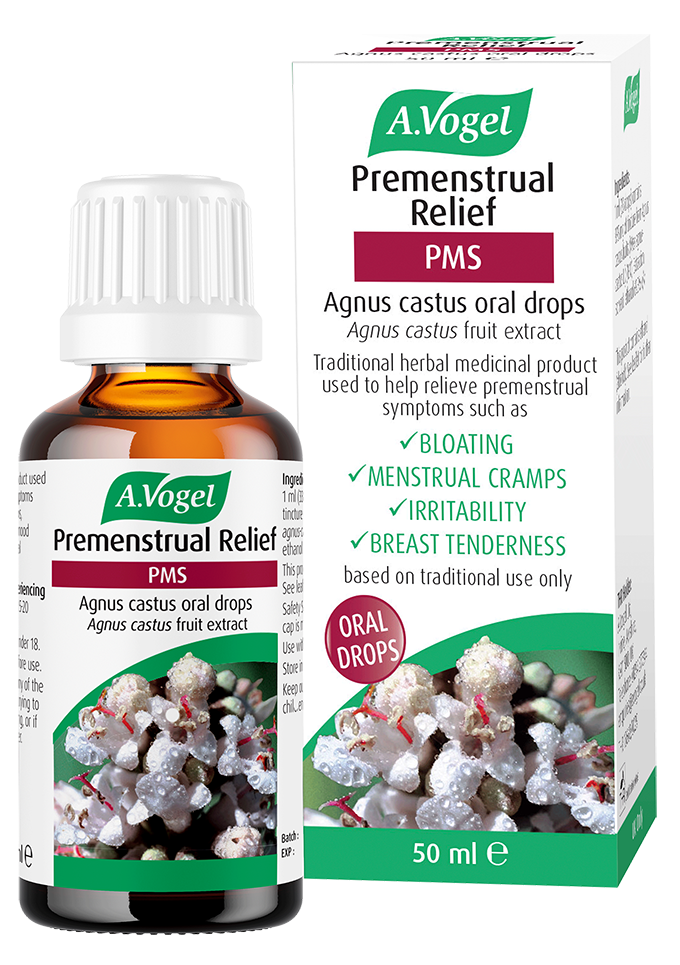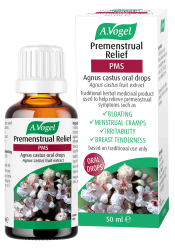What is PMS?
Premenstrual syndrome (PMS) and Premenstrual tension (PMT) are two different names for the same condition. The term PMS is more often used nowadays.
The condition is characterised by a group of symptoms experienced regularly each month by menstruating women. Symptoms appear after ovulation and resolve once menstrual bleeding starts. This span of approximately two weeks is known medically as the ‘luteal phase’ of the menstrual cycle.
Do I have PMS?
The pattern of symptoms coming and going in time with the menstrual cycle is important in the diagnosis of PMS. Women, who feel unwell for most of the month or every day, are unlikely to have true PMS and may suffer from another condition.
Even so, diagnosis of PMS is not always easy to make. This is because most women (estimated to be 85%) experience a few menstrual symptoms before each period but not all will have PMS. Only when symptoms begin to affect day-to-day living and quality of life will the diagnosis be considered.
Research suggests that between 3 and 8% of women experience severe symptoms of PMS - a condition known as PMDD (Premenstrual Dysphoric Disorder).
It might be worth recording your symptoms using our PMS Diary – this way you’ll be able to monitor your symptoms and gouge their frequency and severity!
What causes PMS?
It is not clear what causes PMS. What we know is that the ‘balance’ of the two main female hormones oestrogen and progesterone play an important role, but how and why symptoms arise has still to be worked out by scientists.
However, several factors are known to contribute to the problem by worsening symptoms. These include:
- Diet
- Genetics
- Hormonal changes
- Chemical changes
- Stress
- Psychological issues
For each individual, having an understanding of the factors influencing your PMS symptoms can help you find an appropriate solution. For example, if stress is a factor, tackling the causes of your stress and learning how to cope better with the stresses you face can help improve symptoms of PMS.
Who gets PMS?
PMS can affect any menstruating woman. Symptoms are not experienced during pregnancy and for obvious reasons, end with the menopause.
The condition is said to be most common between the ages of 20 and 40, and in women who have had only one child. PMS is also said to be most troublesome when there are big changes in hormones, such as around the time of the first period (menarche), just before the menopause or when coming off the pill.
In general, doctors will avoid the diagnosis of PMS in young teenagers who have just started their periods despite the fact that many girls experience symptoms in their first few years of menstruation.
What are the symptoms?
A large number of PMS symptoms have been described, with some sources suggesting figures as high as 150. Symptoms may be classified as either physical or emotional and the most common ones are:
Physical symptoms:
- Period or menstrual pain
- Headaches
- Painful breasts (mastalgia)
- Skin problems (eg. acne)
- Bloating
- Nausea
- Weight gain
- Food cravings
- Feelings of restlessness
Emotional symptoms:
PMS can also trigger or worsen a few underlying health conditions such as asthma, migraine, cold sores and eczema.
Thankfully, most women experience only one or a handful of symptoms. What is interesting is that the symptom pattern affecting each does not tend to vary much from month to month.
What herbal treatments are available?
Herbal remedies have long been used to treat PMS symptoms and are popular with women who prefer to avoid the use of conventional medication. There are two main approaches:
- Start by treating the underlying problem of hormonal imbalance using a herb such as Agnus castus. This is especially appropriate if you experience the common PMS symptoms of irritability, mood swings, breast pain, bloating and menstrual cramps. Read why 100% of women recommend Agnus castus to relieve symptoms for PMS
- If you are troubled by one particular symptom, treat this specifically. For instance, if PMS reduces your ability to cope with stress, taking a valerian based product can help improve the way you feel – it may be taken on its own, or together with Agnus castus.
In either case, simple lifestyle changes (diet and exercise) can help symptoms.
Premenstrual Relief Agnus castus Oral Drops| Helps Relieve Pre-Menstrual Symptoms | Mood Swings, Menstrual Cramps, Bloating & Breast Tenderness
£12.99 (50ml) In Stock Get it tomorrow, 5th July.
How would my doctor treat PMS?
In general, doctors would prefer to avoid the use of prescription medicines when treating PMS. However, if you have tried non-prescription medicines and symptoms are still troubling you, there is sometimes little choice but to give painkillers, anti-depressants or the oral contraceptive pill a try.
For more information, follow the link to our page on PMS treatments
My PMS Journal
Keep track of your symptoms with our PMS Diary to identify patterns & help discover ways to minimise them.









